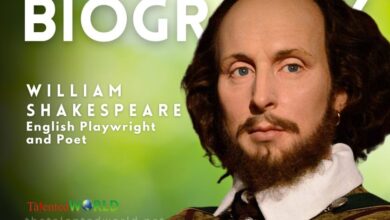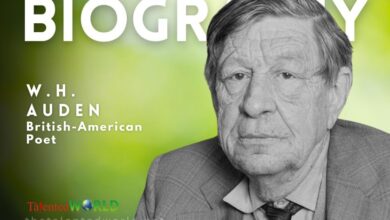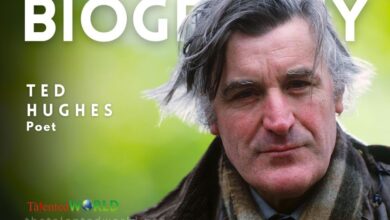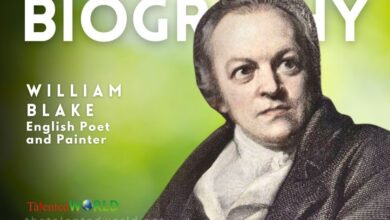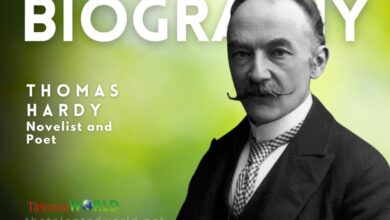Quick Facts
| Fact | Details |
|---|---|
| Full Name | Robert Browning |
| Born | 7 May 1812, Camberwell, London, England |
| Died | 12 December 1889 (aged 77), Venice, Italy |
| Resting Place | Westminster Abbey |
| Occupation | Poet, Playwright |
| Alma Mater | University College London |
| Literary Movement | Victorian |
| Notable Works | “The Pied Piper of Hamelin”, Men and Women, The Ring and the Book, Dramatis Personae, Dramatic Lyrics, Dramatic Romances and Lyrics, Asolando, “My Last Duchess” |
| Spouse | Elizabeth Barrett Browning (m. 1846; died 1861) |
| Children | Robert Barrett (“Pen”) |
| Signature | |
| Early Notable Works | Pauline (1833), Paracelsus (1835) |
| Key Themes in Poetry | Irony, Characterization, Dark Humour, Social Commentary, Historical Settings, Challenging Vocabulary and Syntax |
| Key Publications | Men and Women (1855), Dramatis Personae (1864), The Ring and the Book (1868–1869) |
| Significant Life Events | Married Elizabeth Barrett in 1846, moved to Italy, published Men and Women (1855) |
| Legacy | Seen as a sage and philosopher-poet by his death, he influenced Victorian social and political discourse |
| Family Background | Only son of Sarah Anna (née Wiedemann) and Robert Browning; his father was a well-paid clerk and abolitionist |
| Influences | Grew up in a literary household with a significant library, encouraged in literature and the arts by his father |
| Siblings | Younger sister Sarianna, who became his companion in later years |
Robert Browning Books
| Book Title | Year Published |
|---|---|
| Porphyria’s Lover | 1836 |
| Meeting At Night | 1845 |
| The Pied Piper of Hamelin | 1842 |
| Andrea del Sarto | 1855 |
| Fra Lippo Lippi | 1855 |
| Childe Roland to the Dark Tower Came | 1855 |
| The Laboratory | |
| The Ring and the Book | 1868 |
| Rabbi ben Ezra | 1864 |
| Men and Women | 1855 |
| Sordello | 1840 |
| Dramatic Lyrics | 1842 |
| Love Among the Ruins | 1855 |
| Soliloquy of the Spanish Cloister | |
| Evelyn Hope | 1855 |
| Paracelsus | 1835 |
| Caliban upon Setebos | |
| Asolando | 1889 |
| Dramatis Personæ | 1864 |
| Dramatic Romances and Lyrics | 1845 |
| Bells and Pomegranates | 1841 |
| Pauline: A Fragment of a Confession | 1833 |
| Johannes Agricola in Meditation | 1836 |
| Selected Poems of Robert Browning | 1887 |
| Mr. Sludge, “The Medium” | 1864 |
| Justinian and Theodora | 1971 |
| Letters of the Brownings to George Barrett | |
| Red Cotton Night-Cap Country | 1873 |
| The Poetical Works of Robert Browning: Vol. II : Sordello – Pippa Passes | |
| Summum Bonum | |
| The Statue and the Bust | 1855 |
| Fifine at the Fair | 1872 |
| The Love Letters of Robert Browning and Elizabeth Barrett | |
| Poets of Nature: A Meditation on the Human Connection with Earth | |
| The Poetical Works | 1868 |
| Introduction To Browning | |
| A Blot in the Scutcheon: Original Edition | |
| Pauline. Paracelsus. Strafford | 1883 |
| Parleying With Certain People of Importance in Their Day; to Wit, Bernard De Mandeville, Daniel Bartoli, Christopher Smart, George Bubb Dodington, Francis Furini, Gerard De Lairesse, and Charles Avison | |
| The Poetical Works Of Robert Browning 1841-1846; Including Bells And Pomegranates | |
| The Complete Poetic and Dramatic Works of Robert Browning Volume V | |
| The Complete Poetic and Dramatic Works of Robert Browning Volume IX | |
| The Poetical Works of Robert Browning: The |

